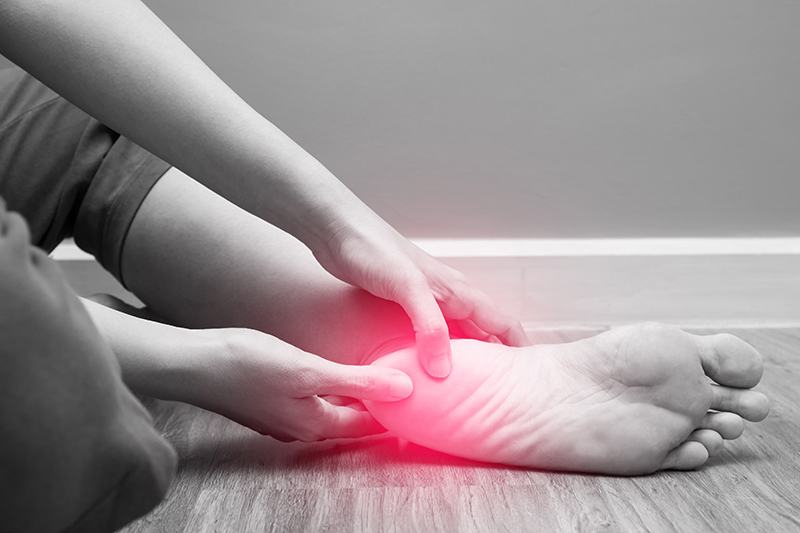
Heel pain is common. Athletes, teachers and waitresses could have an inflamed or torn fascia, the ligament that stretches from your heel to your toes. Anyone who repeatedly walks on a hard surface or pushes off with their foot to run a race is at risk of plantar fasciitis. It can be a dull pain, or a stabbing one.
The plantar fascia is tight band of strong tissue on the bottom of the foot that helps support the arch. This band is attached to the heel bone and extends all the way to the toes. Plantar fasciitis is a common condition in which the plantar fascia becomes inflamed and painful. This condition affects virtually all people at some time, but is particularly common in runners and those who stand for prolonged periods of time. In the past, heel spurs were thought to cause heel pain, but currently the fascia is considered the primary source of discomfort in this area.
What are the symptoms of plantar fasciitis?
Because the plantar fascia attaches to the heel bone, this is where the pain is usually the worst. Because the fascia becomes particularly stiff at night, pain is usually worse in the morning when the patient begins to walk. The pain often is aggravated by standing, walking and especially running.
What is the treatment for plantar fasciitis?
The mainstay of treatment is plantar fascia stretching. This is best done by sitting cross-legged and pulling the toes back toward the shin. This stretch should be performed before getting out of bed in the morning and repeated at least hourly. You can also stretch by standing on a step and lowering the heels below the step. Other treatments include:
- Activity modification
- Heel gel pads
- Orthotic arch supports
- Avoiding barefoot walking or standing
- Anti-inflammatory medicine (by mouth, for two to three weeks)
- More supportive shoes
- Physical therapy (including ice and stretching)
- Night splint and/or a walking cast for three to six weeks
- Corticosteroid injection
- Shock wave therapy may reduce pain and promote healing of this condition. This type of energy wave treatment (i.e., strong sound waves) is often tried prior to surgery.
- Platelet-rich plasma injections
- Surgery (rarely necessary)
How long does plantar fasciitis take to get better?
Plantar fasciitis does not resolve quickly. Most patients will experience improvement slowly. It may take up to six months.




